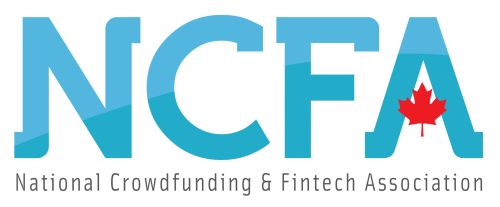Jun 28, 2024


Effective communication is the backbone of any successful business venture, especially regarding the intricate process of managing a request for proposal (RFP). The issuing and overseeing of an RFP can be daunting, and the complexity is compounded by the need to maintain clear, strategic communication between all parties involved. Establishing this at the onset helps minimize misunderstandings, streamlines the selection process, and ensures that business needs are adequately met. Below, we explore essential communication strategies to consider throughout the RFP lifecycle.
Understanding the Role of Effective Communication in RFP Processes
Communication in the RFP process begins well before the actual document is drafted. It involves understanding stakeholders’ needs, the project’s scope, and the desired outcomes. Clear communication here sets the foundation for a well-structured RFP and helps potential vendors understand the project’s primary goals. Moreover, it assures that responses are aligned with expectations, facilitating a smoother selection process.
In addition to laying the groundwork, effective communication during this phase helps identify potential hurdles early on. Businesses can preemptively mitigate risks associated with misaligned visions or expectations by addressing these concerns with stakeholders. Timely and thoughtful exchanges encourage consensus and pave the way for a more transparent RFP process.
As the RFP document serves as the nexus of communication between an organization and its potential suppliers, it should reflect clarity and precision. Avoiding ambiguity and providing comprehensive information helps vendors accurately determine whether they can meet the project’s demands, hence crafting an appropriate response. Transparent communication here can significantly impact the quality and suitability of proposals received.
Fostering Collaborative Communication Among Stakeholders
Collaborative communication among stakeholders is vital in ensuring the RFP aligns with strategic objectives. Involving key players from various departments can provide insights that lead to a more holistic RFP. These collaborative efforts help in identifying potential bottlenecks and ensure that the RFP addresses cross-functional requirements that might be otherwise overlooked.
Encouraging stakeholders to engage in the RFP development process also fosters an environment of shared responsibility and investment in the project’s success. Having various perspectives contributes to more robust and detailed requirements, which can make the RFP more appealing to the best-fit vendors. It may also enhance the quality of questions vendors have during the clarification stage, leading to better proposals.
Communication during the vendor selection phase should be built on transparency and fairness. Establishing clear criteria and facilitating open discussions can assist the decision-making process and ensure that the chosen proposal aligns best with project goals. Stakeholders should receive regular updates, and any decision should be communicated promptly to keep all parties informed and engaged.
Post-selection, maintaining dialogue with stakeholders and the chosen vendor is essential for the project’s progression. This continuous communication helps resolve issues quickly, align expectations during implementation, and pave the way for future collaboration. Creating an atmosphere of open communication can result in partnerships that evolve beyond a single project into long-term business relationships.
Harnessing Technology for Streamlined RFP Communication


The advent of technology has transformed the way RFPs are managed, supporting enhanced communication between businesses and vendors. Utilizing software dedicated to RFP management can centralize information, making it easier for all parties to access and share documents, timelines, and updates. Well-integrated systems promote transparency and can reduce the likelihood of miscommunication.
Video conferencing and digital Q&A sessions have also become integral to the RFP process, particularly in facilitating virtual meetings that can save time and reso
urces. These technologies ensure that personal communication doesn’t suffer, even when stakeholders are not in the same physical space, providing opportunities for clarification and immediate feedback that can refine the ultimate proposal.
See: 2024 Sees Diverging Paths for Dividends and Wages
Overall, the significance of communication in the RFP process cannot be overstated. It is the lifeblood of successful RFP management, affecting everything from the clarity of the initial document to the effectiveness of the final project delivery. By emphasizing clear, concise, and collaborative communication and evaluating and adapting strategies post-issuance, businesses can enhance their RFP outcomes and build stronger, more efficient vendor relationships. Implementing these practices will yield more favorable results and ultimately contribute to the lasting success of any project or partnership.

 The National Crowdfunding & Fintech Association (NCFA Canada) is a financial innovation ecosystem that provides education, market intelligence, industry stewardship, networking and funding opportunities and services to thousands of community members and works closely with industry, government, partners and affiliates to create a vibrant and innovative fintech and funding industry in Canada. Decentralized and distributed, NCFA is engaged with global stakeholders and helps incubate projects and investment in fintech, alternative finance, crowdfunding, peer-to-peer finance, payments, digital assets and tokens, artificial intelligence, blockchain, cryptocurrency, regtech, and insurtech sectors. Join Canada’s Fintech & Funding Community today FREE! Or become a contributing member and get perks. For more information, please visit: www.ncfacanada.org
The National Crowdfunding & Fintech Association (NCFA Canada) is a financial innovation ecosystem that provides education, market intelligence, industry stewardship, networking and funding opportunities and services to thousands of community members and works closely with industry, government, partners and affiliates to create a vibrant and innovative fintech and funding industry in Canada. Decentralized and distributed, NCFA is engaged with global stakeholders and helps incubate projects and investment in fintech, alternative finance, crowdfunding, peer-to-peer finance, payments, digital assets and tokens, artificial intelligence, blockchain, cryptocurrency, regtech, and insurtech sectors. Join Canada’s Fintech & Funding Community today FREE! Or become a contributing member and get perks. For more information, please visit: www.ncfacanada.org
Related Posts
- SEO Powered Content & PR Distribution. Get Amplified Today.
- PlatoData.Network Vertical Generative Ai. Empower Yourself. Access Here.
- PlatoAiStream. Web3 Intelligence. Knowledge Amplified. Access Here.
- PlatoESG. Carbon, CleanTech, Energy, Environment, Solar, Waste Management. Access Here.
- PlatoHealth. Biotech and Clinical Trials Intelligence. Access Here.
- Source: https://ncfacanada.org/effective-communication-strategies-for-issuing-and-managing-a-request-for-proposal/



